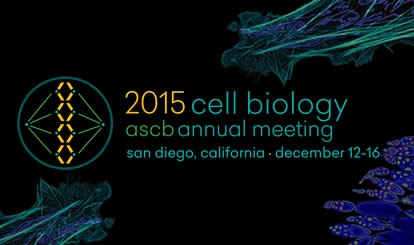#ASCB15 Recap: Effective Science Communication and Social Media for Scientists
Enviado por Mónica Ivelisse Feliú-Mójer el
Recently I led two science communication workshops at the 2015 American Society for Cell Biology (ASCB) Annual Meeting in San Diego, CA. The first titled “Delivering Science: Effective Communication Skills to Become a Successful Scientist” aimed to provide 1) an introduction to effective communication principles and strategies; 2) tangible examples of how effective communication skills can support their professional advancement; and 3) resources that will help them strengthen their communication skills. The first half of the workshop included a panel featuring:
- Dr. Sarah Goodwin, Director, iBiology
- Dr. Verónica Segarra, Assistant Professor, Department of Biology, High Point University
- Kellyann Jones-Jamtgaard, Ph.D. Candidate, Department of Microbiology, Immunology, and Molecular Genetics, University of Kansas Medical Center
- Dr. Ron Vale, Professor, Department of Cellular and Molecular Pharmacology, University of California San Francisco, HHMI investigator and Founder, iBiology
Panelists talked about the importance of knowing your audience and your goal when communicating science. Each of them offered examples from their own experiences in teaching, communicating with lay audiences, scientists outside their fields, peers, and policy makers, among others. Panelists emphasized the importance of knowing the ‘so what’ of your message, preparing and practicing what you want to say ahead of time (as well as knowing your talking points and take home message).
Science Communication Resources
- A collection of papers on the science of science communication
- Effective Communication and Social Media for Scientists – This old post of mine contains a list of science communication resources.
The second half of the workshop featured a hands-on activity using COMPASS’ (not ASCB’s COMPASS, but a non-profit of the same name) Message Box. This tool allowed participants to think about an issue they wanted to communicate, identify key components of their message and put into practice the principles and advice they heard during the first half.
The second workshop was “Social Media for Scientists” and it offered an introduction to social media, particularly Twitter, and discussed why these platforms can be an invaluable tool to scientists. The workshop focused on how social media offers scientists new ways to expand their professional network; connect with policymakers and the public; to communicate scientific research; and to advance their professional career. Below is the workshop slide deck as well as some useful links and resources.
Twitter Basics
- Getting Started with Twitter – Straight out of Twitter, this is a pretty good guide on how to get started on the versatile social media platform.
- Twitter Guide Book – A pretty comprehensible guide to Twitter, by Mashable.
- The Teacher’s Guide to Twitter – This guide has some great advice and resources to get connected, manage, organize and get value from Twitter that can be helpful to everyone, not just teachers and educators.
- Eight Twitter Username Tips – Useful tips for picking a Twitter username.
Twitter and Social Media for Scientists
- A Scientist’s Guide to Social Media
- An Introduction to Social Media for Scientists
- Let’s talk about Twitter
- Science and Social Media: Some Academics Still Don’t Get It
- 6 Tools & Tips: Online Social Networking for Scientists
- Why Scientists Should Give Twitter a Try
- How to Effectively Use Twitter for Science Communication
- Using Twitter to Find Jobs
- Worksheets from the Twitter for Academics eBook
MISSION ACCOMPLISHED :)
Attended a great talk on social media for scientists by @moefeliu. She convinced me I need Twitter, so here I am! #myfirstTweet #ASCB15
— Alana L. Gray (@agrayphd) December 17, 2015









